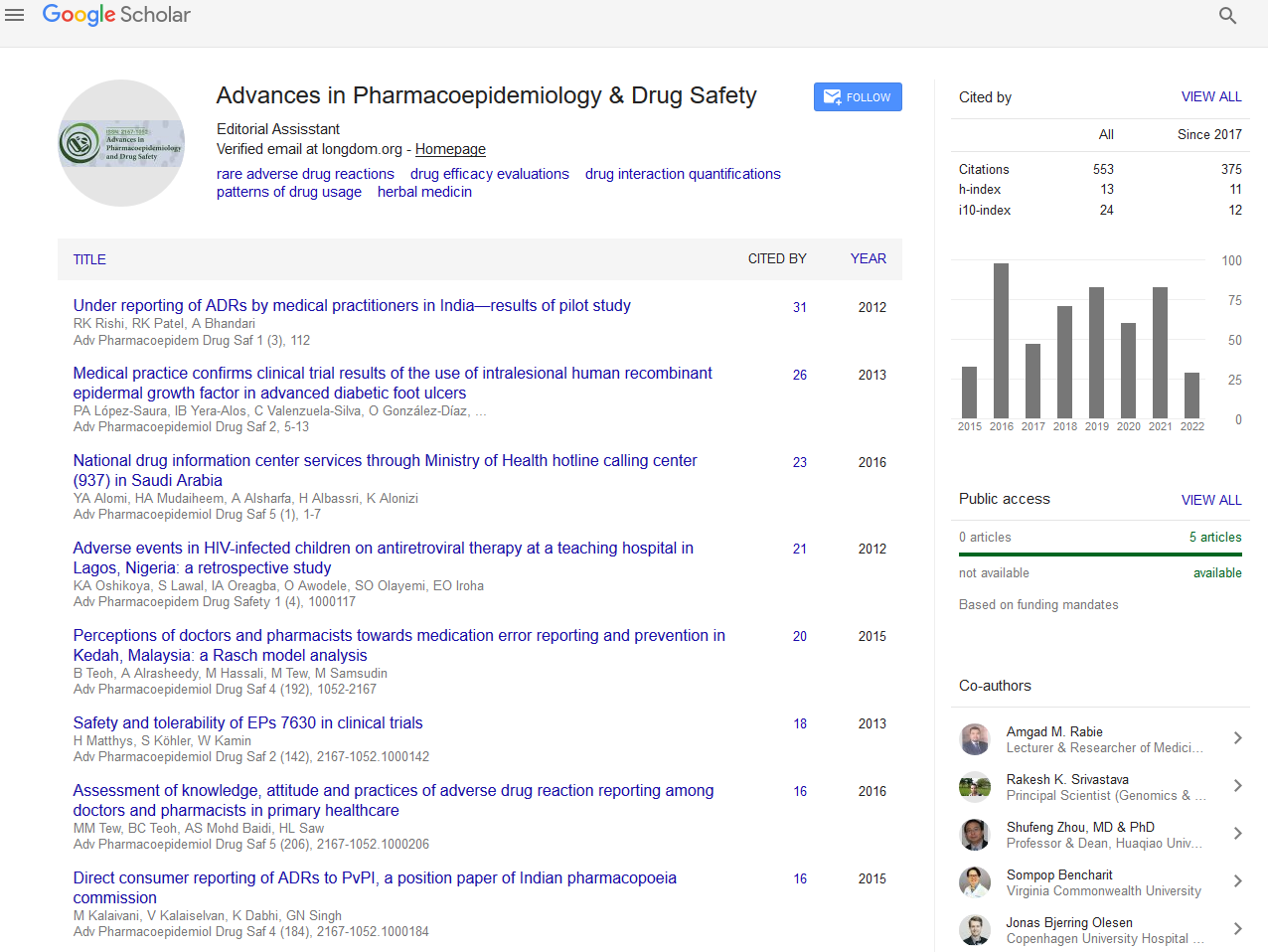Indexed In
- Open J Gate
- Genamics JournalSeek
- Academic Keys
- JournalTOCs
- RefSeek
- Hamdard University
- EBSCO A-Z
- SWB online catalog
- Publons
- Geneva Foundation for Medical Education and Research
- Euro Pub
- Google Scholar
Useful Links
Share This Page
Journal Flyer

Open Access Journals
- Agri and Aquaculture
- Biochemistry
- Bioinformatics & Systems Biology
- Business & Management
- Chemistry
- Clinical Sciences
- Engineering
- Food & Nutrition
- General Science
- Genetics & Molecular Biology
- Immunology & Microbiology
- Medical Sciences
- Neuroscience & Psychology
- Nursing & Health Care
- Pharmaceutical Sciences
Abstract
Retrospective Review of Weight Gain with Atypical Antipsychotics at GMH and COCMHC
Kothari DJ and Tabor A
Objectives: Anti-Psychotics are a group of medications that are used to treat schizophrenia group of conditions, Mania caused by Bipolar disorder, and other conditions that can cause visual or auditory hallucinations. These hallucinations cause an individual to lose balance with reality and force their inner well being to lose self-control. The purpose of this research design is to identify the relationship between the atypical anti-psychotics and their associations with weight gain. The design is set to distinguish which of the three drugs leads to more weight gain and diabetogenic complications and added side effects in the patients at Griffin Memorial Hospital and Central Oklahoma Community Mental Health Center from 1/1/2010 to 12/31/2013.
Methods: Data from 555 patients were analyzed using a one-way ANOVA from Excel and R-version 3.0.3
statistics. Data was statistically analyzed using p tests.
Results: All of the atypical antipsychotics (Quetiapine, Olanzapine, Clozapine) led to weight gain with
Risperidone having a synergistic effect. Diabetes was associated with all of the drugs and Quetiapine showed more GI complications than the other drugs and combinations (p>0.05).
Conclusion: Our study suggests that atypical antipsychotics that were studied were associated with weight gain. Our findings demonstrated that no one drug was overwhelmingly led to more weight gain than the other. Adding risperidone had a synergistic effect and further enhanced weight gain. If replicated, the data may lead to clarification of the results and concluded analysis of the pharmacologic treatment plans of patients at Griffin Memorial Hospital and Central Oklahoma Mental Health Center.


